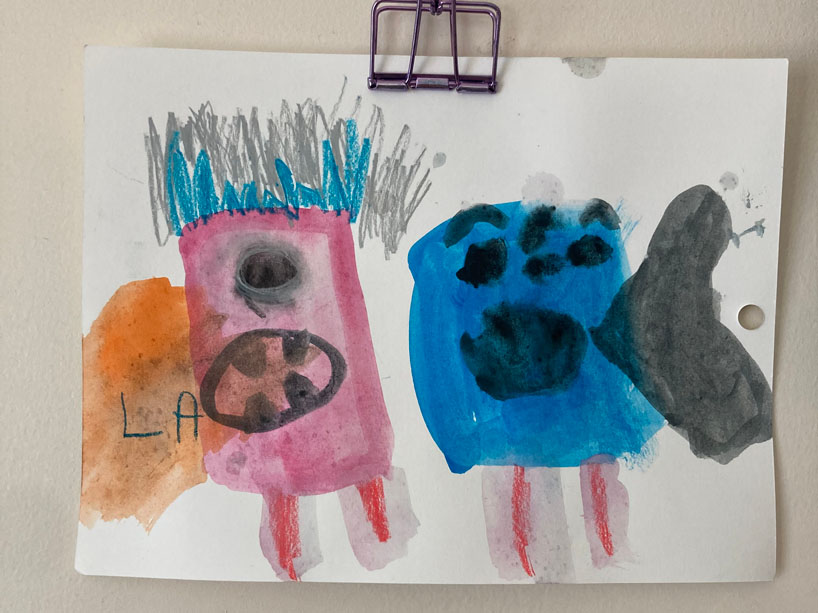How do I love me? Let me count the ways

On Valentine’s Day take time to acknowledge, appreciate and love yourself. TMU faculty experts share why self-love and self-care are foundational. AdobeStock photo
Whether you’re celebrating Valentine’s Day this year or not, you don’t need a holiday to appreciate the many forms that love takes in your life. None, however, will be as consequential as the way you love yourself.
Self-love involves self-care and self-acceptance, and includes the actions we take to support our physical and mental well-being.
Accepting ourselves and being compassionate with ourselves, regardless of our relationship status, how much money we earn or other aspects of ourselves that are not intrinsic to our being, is an important aspect of self-love.
A strong sense of self-worth can help our physical, mental and emotional health, build stronger relationships and grow success in our professional lives.
Distinguishing self-care and self-love
Clinical psychologist Diana Brecher who is affiliated with TMU’s Thriving Innovations, doesn't see self-care and self-love as identical.
“I think self-care is like the maintenance crew making sure we are getting enough sleep, eating well, exercising, connecting with others, all those things,” says Brecher. “Self-love is about respecting yourself, establishing boundaries. It's about the authentic self that you bring to the connections that you have in your life. Self-care is foundational to all this.”
Cultivating self-worth
Self-respect and self-validation are learned, says Brecher.
“We usually learn it because someone else is mirroring that back to us,” she says. “They're acknowledging that we are valuable and that they respect us. At some point in time, we take it on for ourselves.”
Once we own our self-worth, we can then set healthy boundaries, she explains.
“If you say I value what I bring to the table, then even if someone else doesn't, it's not going to crush you in the way that it would if you didn't own it in the first place.”
Those of us with more porous boundaries may prioritize the value of giving, she says, sometimes to the detriment of our own well being.
“It's about balance. Self-sacrifice is admirable, but to an extreme, it's martyrdom.”
It is important to balance meeting someone else’s needs and meeting our own needs; otherwise, we can end up feeling burnt out, which can affect our mood and physical health. It can also lead us to be taken for granted, which can negatively impact our relationships and fuel feelings of resentment and hurt.
Affection for our whole self
There can be pressures associated with the idea of accepting all aspects of ourselves, explains Professional Communication Professor Zorianna Zurba. She finds the term ‘self-affection’, coined by French feminist philosopher Luce Irigaray, can be more helpful.
“Irigaray explores this idea of cultivating a kind of intimacy with ourselves that is embodied, where we fully acknowledge that we are unique, as is our romantic partner and everyone else we witness,” says Zurba.
The idea, she says, is that this uniqueness also encompasses the unseen challenges we are dealing with, the hurt and the traumas we may be overcoming, and the inner child that others don’t immediately see.
“And yet, these are the parts that we brush up against in our interactions, especially in our intimate interactions,” says Zurba. “But in order to acknowledge the other person's inner child, we need to acknowledge our own.”

The ‘love monsters’ created by Professor Zorianna Zurba’s young son. Having this picture up on the wall in her office is a way of bringing herself joy in her days at the office.
The Creative School professor says that we give care, affection, attention, intimacy, attention, softness, generosity and more to those we hold in our hearts, all of which encompass love. Yet we must also practise these with ourselves. She prompts us to ask how we can bring kindness, ease or gentleness in our day to day.
“If I have class and then I have three back to back meetings, what's one way I can bring a bit of gentleness into that? Maybe staring up at the sky to watch the clouds, sitting at the window to experience some sunshine on your face, taking a breath.”
From the smallest acts of self-love, which can cost nothing, to buying ourselves flowers or a meal to enjoy or give us more time to relax, to more luxurious acts of love like a day at a spa, the key is to take time to meet our own needs for care, love and attention.
Gratitude the antidote to negativity
Getting into the habit of practising gratitude can shift our mindset, provoking expanded appreciation for ourselves and others.
“Gratitude is both a recognition and an affirmation,” Brecher says. “We intentionally notice good things are happening, and not take them for granted, possibly savouring those good things.”
In fact, Brecher explains, gratitude can be the antidote to negativity bias—our tendency to hone in on risk, danger, problems and challenges and dwell on them. As a survival mechanism, we are hardwired for this cognitive bias.
“If ten things happen in a day, nine of them are good and one of them is bad, you're going to pay attention to the bad thing. Why? Because of that negativity bias,” she says.
The practice of gratitude, Brecher explains, helps us to shift away from that bias, and bring more balance and intentionality, through mindful acknowledgement of the positives.
Stay true to you
Practising self-love also means establishing values to guide our decision making.
For philosophy professor Michael Milona who teaches the undergraduate course, Philosophy of Love and Sex, values play a crucial role in the types of commitments and projects we take on as well as our level of dedication to them.
“If I think education is valuable, then that might lead me to pursue teaching,” says Milona. “Or if poverty is a big issue for me that I feel strongly needs to be overcome, I might develop goals and projects that lead me to try to help. Self-love is an abiding commitment to such values and goals that keeps me from veering off course.”
Milona, whose primary research area is ethics and morality, with an interest in understandings of romantic love, points out that when we love someone, we also tend to genuinely care about their projects and their goals. We become willing to take their plans seriously as if they were our own. It stands to reason then that our commitment to our values can also determine our level of commitment to our own projects and goals.
By taking on projects we feel are valuable we also foster self-worth, and by taking up new challenges we can reinforce our strengths, abilities and talents and discover new ones as well. We also gain self-knowledge, says Milona, and can find meaning, fulfilment and a sense of achievement.
Our commitment to the things we care about can also translate into our connections with others.
“I think there is a natural connection between our commitment to relationships with loved ones and our level of commitment to ourselves and the things we care about,” says Milona. “Like the Christian commandment says, ‘love your neighbour as yourself.’ So in order to love your neighbour as yourself, you need to love yourself first.”
For the love of oneself
This Valentine’s day, make sure you’re taking care of you. Self-love means valuing your health and happiness. Treat yourself with kindness and respect, and nurture your growth and wellbeing in ways that bring out the best in you.